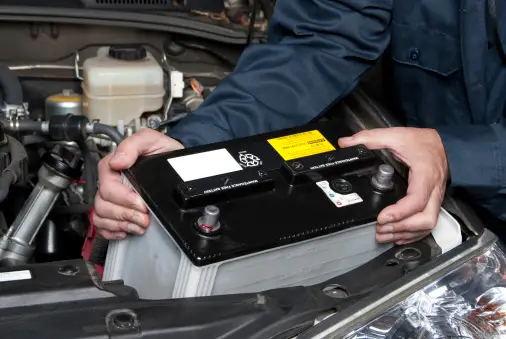March 3, 2024
What is important in car battery?
Several factors are important in a car battery:
- Capacity: Capacity refers to the amount of charge a battery can store, measured in ampere-hours (Ah). A higher capacity typically means the battery can provide more power for a longer duration before needing recharging.
- Cold Cranking Amps (CCA): CCA measures a battery’s ability to start an engine in cold temperatures. It indicates the maximum current a battery can deliver at 0°F (-18°C) for 30 seconds without dropping below a specified voltage. Higher CCA ratings are necessary for colder climates.
- Reserve Capacity (RC): RC measures the battery’s ability to sustain a minimum electrical load in case the alternator fails. It indicates how long the battery can power essential vehicle systems if the charging system fails.
- Voltage: Most car batteries operate at 12 volts. Voltage determines the electrical potential difference between the positive and negative terminals, crucial for powering various electrical components in the vehicle.
- Maintenance: Some batteries require regular maintenance, such as checking electrolyte levels and ensuring terminal connections are clean and tight. Maintenance-free batteries are sealed and don’t require refilling with water.
- Type: There are different types of car batteries, including lead-acid, AGM (Absorbent Glass Mat), and lithium-ion. Each type has its own advantages and disadvantages in terms of performance, lifespan, and cost.
- Durability and Lifespan: A durable battery with a longer lifespan is desirable to avoid frequent replacements. Factors like build quality, materials used, and manufacturing processes influence a battery’s durability.
- Price and Warranty: Consider the battery’s price in relation to its features and warranty coverage. While cheaper batteries may save money upfront, they might have shorter lifespans or lack sufficient performance.
- Compatibility: Ensure the battery is compatible with your vehicle’s specifications regarding size, terminal placement, and electrical requirements.
- Environmental Impact: Some batteries are more eco-friendly than others. Choosing a battery with recyclable materials or one that meets environmental standards can reduce your carbon footprint.
- Brand Reputation: Opting for reputable brands known for producing high-quality batteries can provide assurance of reliability and performance.
Considering these factors can help you select a car battery that meets your vehicle’s requirements and offers reliable performance over time.
How do you know a good car battery?
Determining whether a car battery is good involves assessing several factors:
- Performance: A good car battery should consistently deliver reliable performance, providing sufficient power to start the engine, run electrical components, and maintain a stable voltage output.
- Durability: Look for batteries with sturdy construction and high-quality materials to ensure they can withstand the rigors of everyday use, including temperature extremes and vibrations from driving.
- Longevity: A good battery should have a long lifespan, ideally lasting several years before requiring replacement. Consider factors such as warranty length and user reviews regarding battery longevity.
- Maintenance Requirements: Depending on your preference, you might opt for maintenance-free batteries or those that require periodic maintenance. A good battery should have manageable maintenance requirements that fit your lifestyle and expertise.
- Cold Cranking Amps (CCA): Ensure the battery has sufficient CCA rating to start your vehicle reliably, especially in cold weather conditions. Higher CCA ratings are essential for colder climates.
- Reserve Capacity (RC): A good battery should have a healthy reserve capacity to provide power for essential vehicle systems in case of alternator failure or other emergencies.
- Compatibility: Verify that the battery is compatible with your vehicle’s specifications in terms of size, terminal placement, and electrical requirements.
- Brand Reputation: Choose batteries from reputable brands known for their quality, reliability, and customer support. A good track record and positive reviews can offer assurance of the battery’s performance.
- Price vs. Value: While price is a consideration, focus on the overall value offered by the battery, considering factors such as performance, durability, longevity, and warranty coverage.
- Environmental Impact: Some batteries are more environmentally friendly than others. Consider eco-friendly options or batteries with recyclable materials if sustainability is a concern for you.
By evaluating these factors, you can identify a good car battery that meets your vehicle’s needs and offers reliable performance over its lifespan. Additionally, consulting with automotive professionals or seeking recommendations from trusted sources can provide valuable insights into selecting the right battery for your vehicle.

